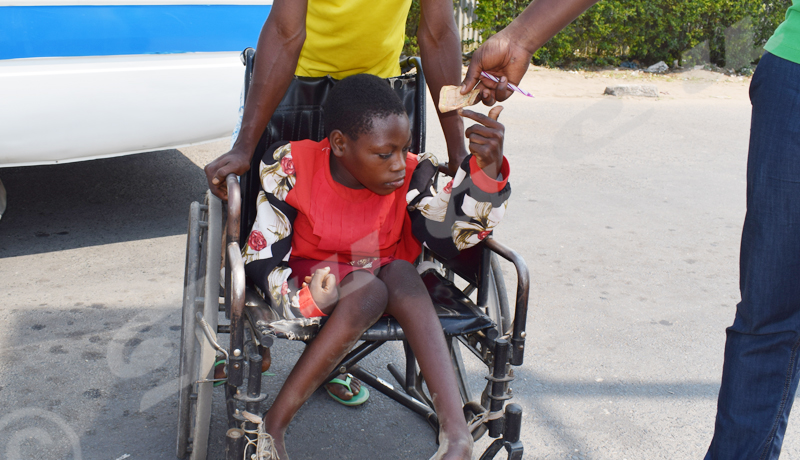The Minister of Human Rights has forbidden giving alms to beggars. Child rights defenders ask the government to adopt accompanying measures to protect the right to life.

A beggar living with disabilities receiving alms in Bujumbura center
Giving charitable gifts to beggars is now forbidden, said Martin Nivyabandi, Minister of Human Rights on the occasion of the celebration of the Day of the African Child on 18 June. According to him, this money must be collected and paid to the local solidarity services in order to be used to assist the poorest people.
The beggars decline this measure arguing that they will starve. “I live thanks to the alms I receive every day. If I do not come here, I will not have anything to eat, “says Butoyi, a beggar living with disabilities met in Bujumbura center. He believes that the government cannot assist all vulnerable people. “Some of us will be victims of the measure,” he says hopelessly.
Nteturuye Isidore, coordinator of the federation of associations defending children rights (FENADEB) believes that the measure of the Minister will help combat the phenomenon of street children. He is, however, worried about the survival of people living from begging before they benefit from the assistance of the government.
“We do not see sufficiently equipped centers set up in all communes to accommodate children who currently live on begging,” says Nteturuye. He calls on the government to take the necessary measures so that street children who live from alms do not die of hunger. “Will the local authorities be prepared to ensure the survival of begging children?” Nteturuye wonders, adding that even the foster families of these street children are in need of assistance. “Has the government identified all those families to be assisted?” he also wonders.
Jacques Nshimirimana, commissioner in charge of promoting children rights within the Independent National Commission for Human Rights (CNIDH) applauds the decision made by the Minister of Human Rights which he says coincides with the Burundian Penal Code of 2017 prohibiting begging, the use of disabled people or children in begging.
Nevertheless, Nshimirimana proposes to implement accompanying measures for this measure. “It is important to find means to support the people living from begging and if possible to bring them together in associations and finance development projects for them,” says CNIDH Commissioner. He is concerned about the categories of people living exclusively from begging. “For the latter, the Ministry of Human Rights must scrupulously examine their situation so as not to violate their rights to live since no one will be allowed to give them alms,” says Nshimirimana.



















 IWACU Open Data
IWACU Open Data

